
Breland: “My favourite type of writing environment is one where I can be silly and laugh.” Photo: Nolan Knight
As he prepares for the release of his debut album, the ‘My Truck’ songwriter drops in for a quick chat
Bringing together elements of hip hop and country, Breland’s 2019 debut single My Truck introduced a boundary-pushing artist poised for big things. Having subsequently worked with huge names such as Nelly, Dierks Bentley, Thomas Rhett and Keith Urban, it seems like the whole industry is sitting up to pay attention to this rising star. With the release of debut album Cross Country scheduled for 9 September and a UK tour with Russell Dickerson happening this October, it’s an exciting time for the Atlanta-based songwriter…
Click here for more interviews
What sort of music did you listen to growing up?
“I grew up listening to almost exclusively gospel music, a lot of Tye Tribbett and Fred Hammond specifically.”
And when did you start playing music?
“Playing instruments was something I tinkered with growing up, from saxophone in elementary school to drums at church, but singing was always my focus.”
How quickly did you then start writing your own songs?
“I’ve been writing songs seriously since I was 14, in terms of knowing I wanted to pursue music, but my first songs came in the form of short-form jingles as a kid. My sister and I wrote a song called I Wanna Bop It when I was about three years old, and we kept writing silly little songs at every age beyond that.”
Was it always your intention to do this for a living or was there a specific moment when this path revealed itself to you?
“I decided music was a career path I wanted to pursue when I was 14 years old. I was a freshman in high school, highly motivated by the success I had seen from Justin Bieber on YouTube and realising how accessible the internet made a music career. I created my own YouTube channel and started taking songwriting more seriously.”
A lot is made of how prolific you are as a writer, is writing as many songs as possible a good way to sharpen your skills?
“For years I felt like writing as many songs as possible was the solution, and I grew a lot from the years I spent writing multiple songs a day. But I also think there’s value in taking your time with each song, and some writers grow fastest that way.”
Do you always start a new song in the same way?
“My songwriting process tends to be melody first, and I try to come up with the chorus first. The way I see it, even if the song moves linearly, the chorus comes around multiple times whereas the verse only happens once, so I prioritise the part of the song that takes up the biggest percentage of it. Once I have a concept in mind and a melody that matches it, I fill in words on the chorus and then verses to make sure the whole song feels right.”

Breland: “My songwriting process tends to be melody first.” Photo: Alaina Mullin
And will you approach a song differently if you’re writing it for yourself rather than for someone else?
“I try to write every song with the same process and sensibilities, whether I’m writing for myself or for someone else – though there are more creative liberties I can take on my own songs, since I don’t have to ask, ‘Would someone else say this?’”
You’ve grown up in the world of co-writing, is it a situation where you always feel at home?
“When I’m co-writing with people I’ve never worked with before, it helps to be able to get to know them a bit and to share some songs I’m excited about and vice versa. It helps to create a safe and open space from which the songwriting process benefits. When I’m co-writing with friends and frequent collaborators, I can usually just jump in. My favourite type of writing environment is one where I can be silly and laugh, because the songs tend to feel more fun and carefree as a result.”
Who have been some of your favourite writing partners so far?
“Rocky Block and Sam Sumser are two of my favourite co-writers, and you’ll find their names all over my forthcoming album. Rocky always brings great energy and strong concepts to a write, and we have a real friendship. Sam is someone that sits more on the production side, but he has been the biggest collaborator and pioneer in developing my sound. He always gives great insight on what will work and what won’t.”
What do you remember about writing My Truck?
“What I remember most about writing My Truck was how special it felt in the room and how quickly the song came together. I didn’t know when I wrote it whether it would be for me or not, but I knew there was something unique about it and that writing it felt really easy.”
When did you start writing your debut album and can you please tell us a little about what we can expect to hear on it?
“I’ve been working on my debut album in earnest over the past two years, and you can expect a lot of genre-blending, a lot of clever wordplay, strong songwriting, and feel-good music.”

Breland: “Once I have a concept in mind and a melody that matches it, I fill in words on the chorus and then verses to make sure the whole song feels right.” Photo: Alaina Mullin
How did you choose the co-writers you wanted to work with on the album?
“I picked all of my co-writers on the album organically. I wrote with dozens of different people between Atlanta, New York, Los Angeles, and Nashville. The best songs made it onto the project, whether my co-writers were first-time collaborators of mine or frequent ones. I’m really proud of how it came together.”
Please could you pick one of the songs from it and tell us some more about the process of writing/recording it?
“The process of writing Throw It Back, which features Keith Urban and will be on the album, was a great time because I got to dig deep into my wordplay bag and come up with as many different ways to flip the phrase Throw It Back. Keith added a lot of really amazing guitar licks and a new energy to a hook we had been playing around with for a while.”
Even though you’ve written many songs over the years, is there a different pressure when writing for your debut album?
“I wouldn’t say there’s pressure when putting together songs for my album versus creating for other people. I try to just let my usual creative process dictate the outcome. Sometimes I’ll make something that doesn’t feel like it’ll make sense for the album but, when it’s all said and done, it makes sense for the project. Sometimes the opposite happens. I try to just focus on making the best song possible and let the rest sort itself out afterward.”
Having worked with so many great songwriters and artists, is there one piece of advice that you’ve been given that’s been particularly helpful?
“The best advice I’ve gotten as a songwriter is to keep challenging the norms and keep challenging yourself creatively. It’s easy to fall into patterns and just write things that are familiar, but what makes you a better writer is pushing yourself outside of your comfort zone.”
Lastly, what are you trying to achieve when you sit down and write a song?
“What I try to achieve when I write a song is to make the best song possible. I’m in service to the song. Simple as that.”


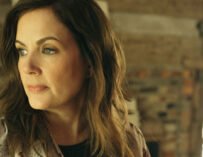
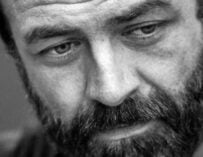




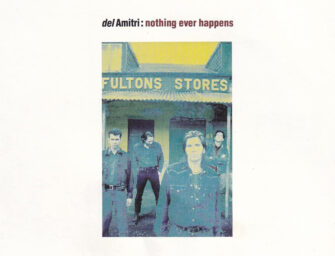

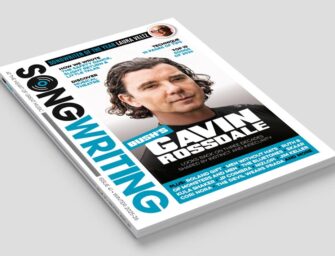
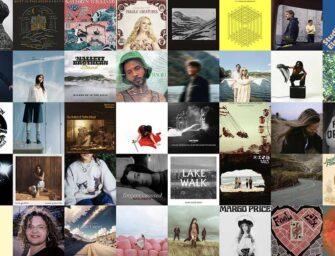




















Related Articles